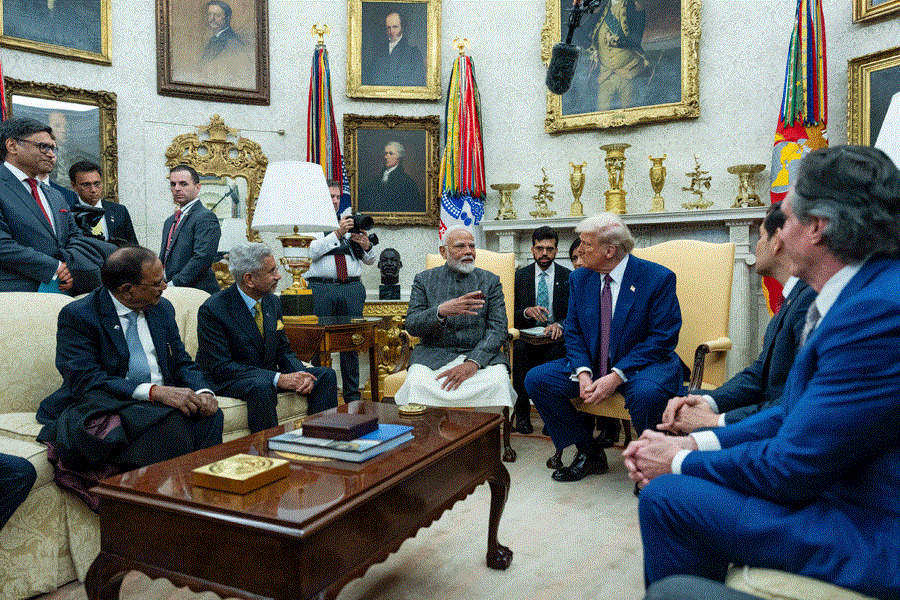Modi Navigates Diplomatic Crosscurrents Amid U.S. Tariff Strain and China Outreach
Prime Minister Narendra Modi’s early years in office were marked by a high-profile outreach to China, symbolised by a riverfront meeting with President Xi Jinping in Gujarat in 2014. However, the bonhomie was soon tested as Chinese troops engaged in border confrontations with Indian forces — the first of several incidents that have kept large numbers of soldiers stationed along the Himalayan frontier.
Subsequently, Mr. Modi deepened strategic engagement with the United States, forging close personal ties with then President Donald Trump and later sustaining momentum under the Biden administration. Addressing the U.S. Congress last year, Mr. Modi described “AI” as “America and India,” underscoring the partnership’s significance in countering Beijing.
Relations, however, have deteriorated sharply in Mr. Trump’s second term. Pointing to India’s continued import of Russian oil, the U.S. administration has imposed a 50% tariff on Indian goods, criticised the Indian economy, and placed Pakistan’s leadership on equal footing with New Delhi in its regional diplomacy — drawing criticism from Indian officials. The developments have revived debate over India’s “strategic autonomy” doctrine, which advocates flexible, non-aligned foreign engagement.
Even as he prepares for his first visit to China in seven years — against the backdrop of Beijing’s military support to Pakistan — Mr. Modi continues to maintain strong ties with Moscow. President Vladimir Putin is expected to visit India later this year, with both sides reaffirming their “Special and Privileged Strategic Partnership.”
On the domestic front, Mr. Modi has framed his stance as a defence of India’s core economic interests. “India will never compromise on the interests of its farmers, fishermen and dairy farmers,” he stated this week, while acknowledging potential political costs.
Observers note that the current strain with Washington is as much a result of leadership dynamics as of policy differences. “When you have two leaders who have turned a nation-to-nation relationship into a leader-to-leader relationship, this is the price,” remarked Sanjaya Baru, former adviser to Prime Minister Manmohan Singh.



